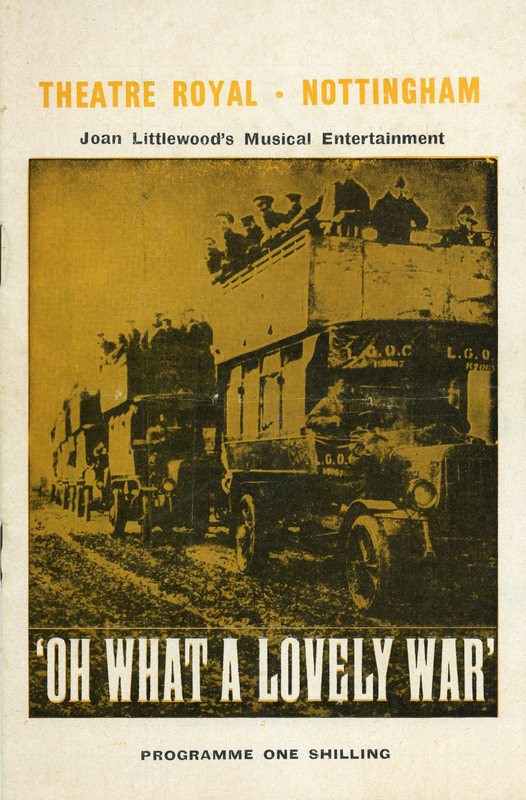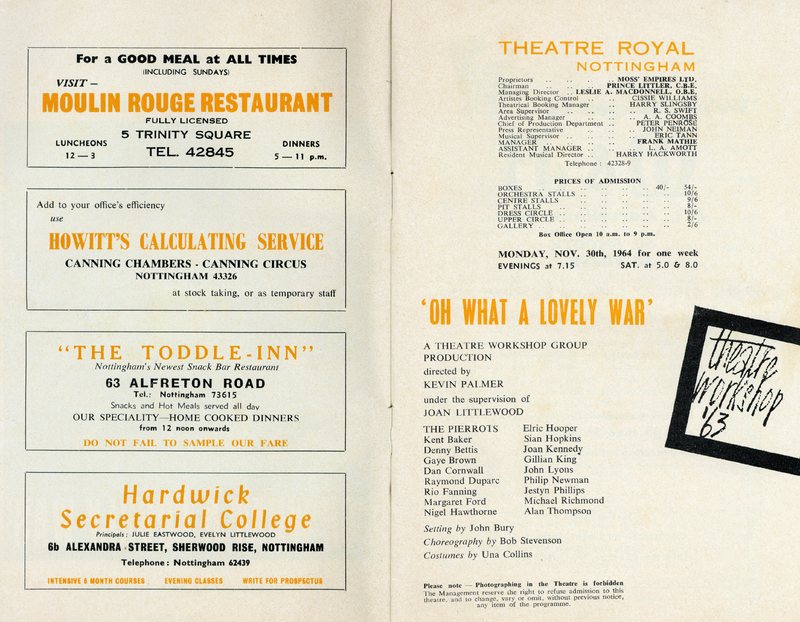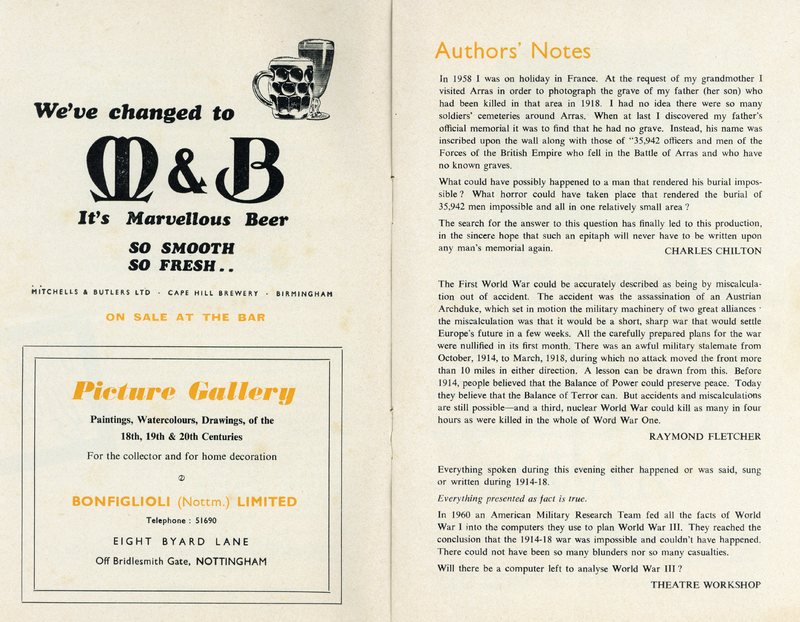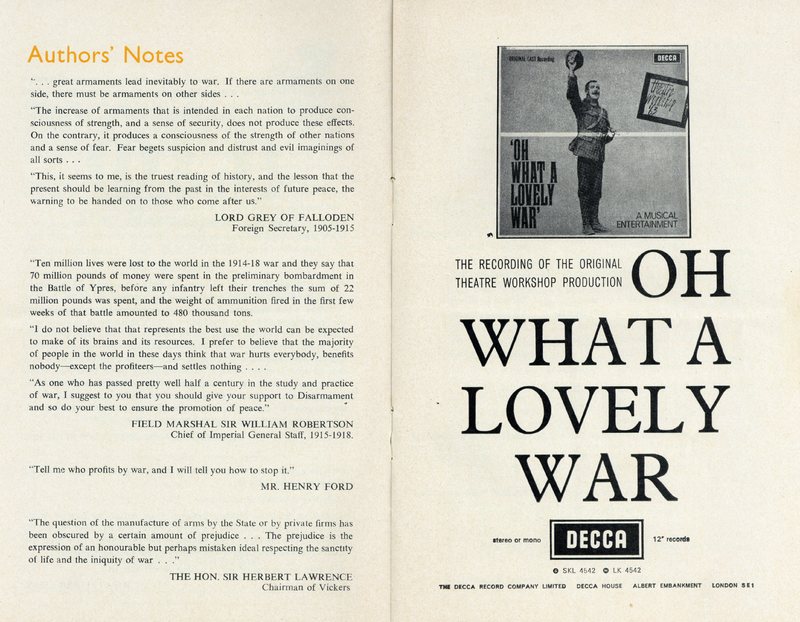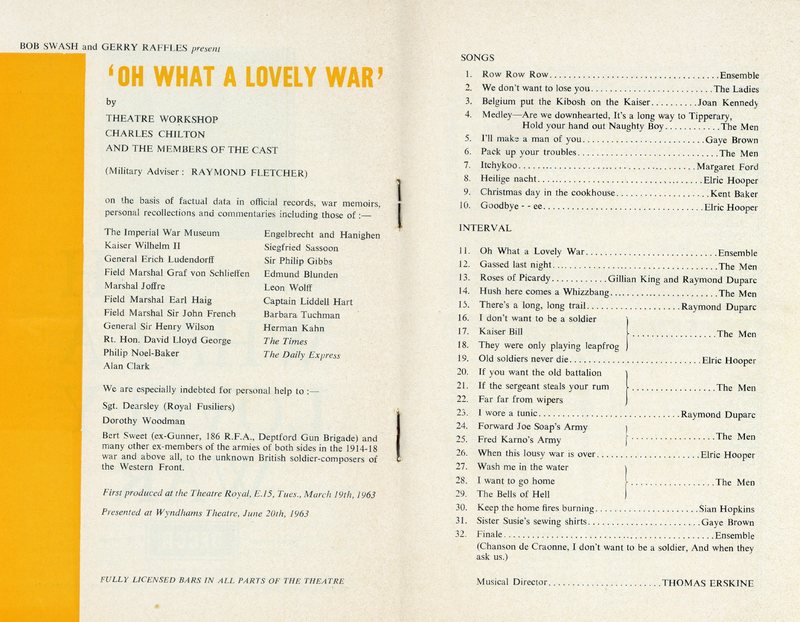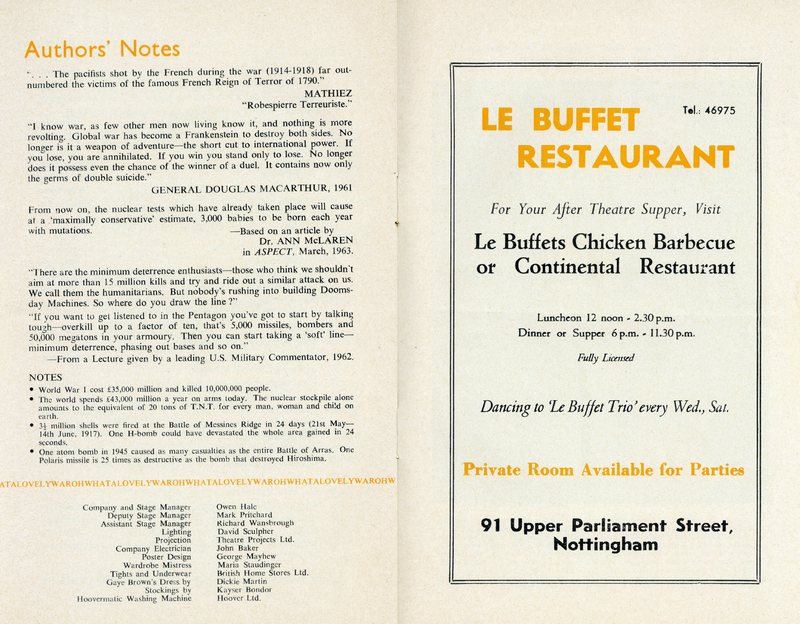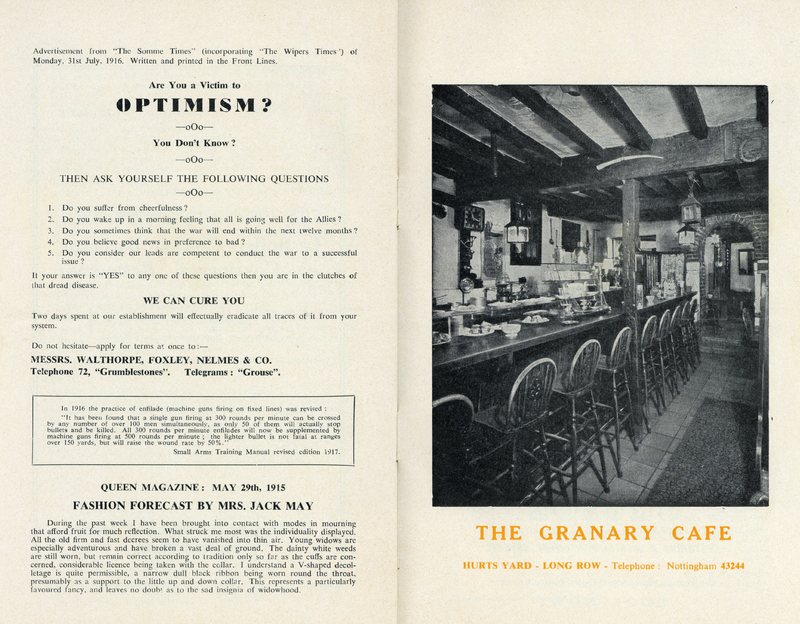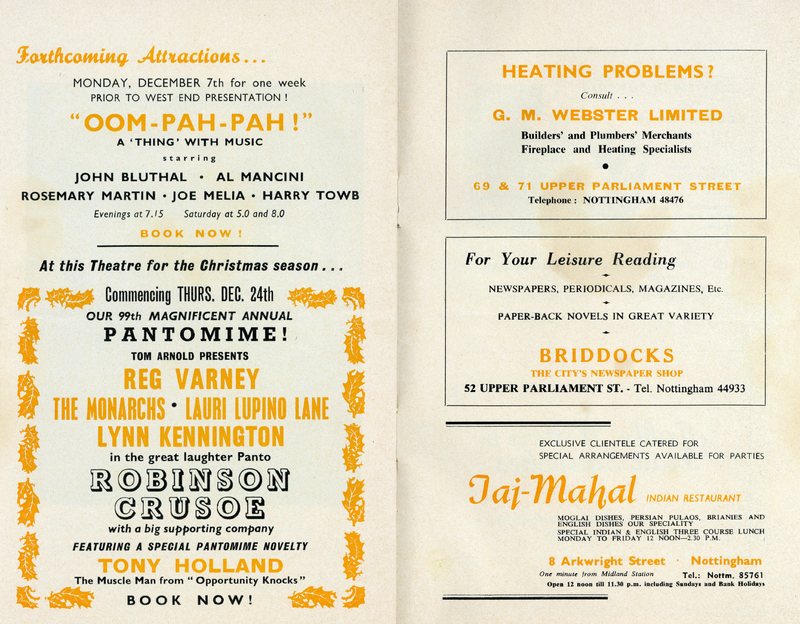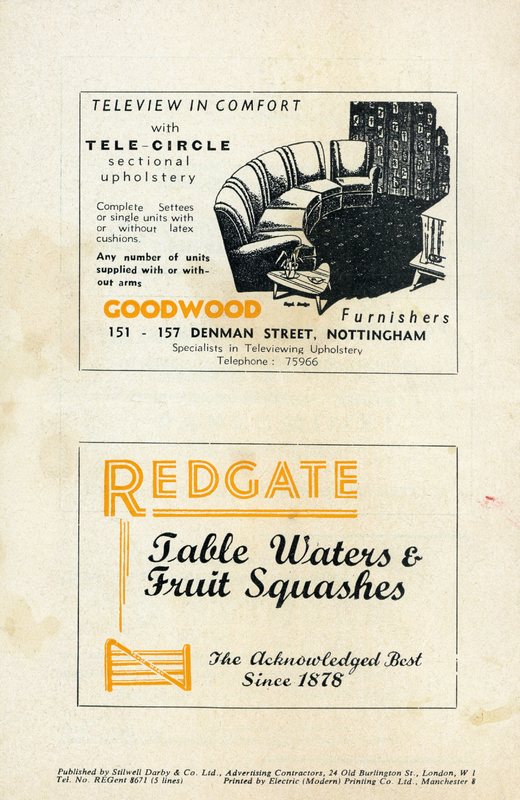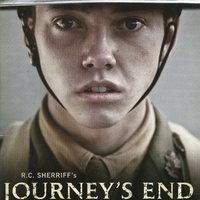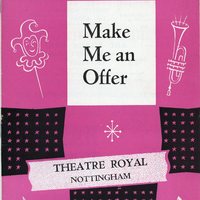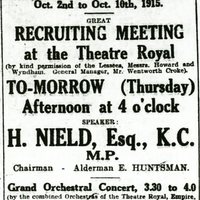Title
Oh What A Lovely War - Programme, 1964
Date
30 November 1964
Description
Full programme for anti-war musical Oh What A Lovely War, produced by Theatre Workshop, under the supervision of Joan Littlewood.
What's the story?
Oh What a Lovely War was a pioneering musical satirising war in general, but with particular focus on World War One.
It premiered at the Theatre Royal Stratford East on 19 March 1963, having been developed by Joan Littlewood and her ensemble at the Theatre Workshop.
In 2014 theatre critic Michael Billington wrote on The Guardian’s website about the show’s legacy and why it was so important to British theatre …
“I'd say the source of Littlewood's genius, and one of the reasons for Oh What a Lovely War's instant success, was her ability to combine a European aestheticism with a deeply English love of popular theatre. The use of pierrot costumes was an inspired choice, as it anchored the show in a seaside tradition. And the presence of music-hall is evident in the way the MC (Victor Spinetti in the original production) chats to the audience as they come in, and reappears later in a hilariously unintelligible drill scene.
So what effect did Oh What a Lovely War have? It helped change attitudes to the First World War. Although we may have read the poetry of Sassoon and Wilfred Owen, we had never before seen popular entertainment express the disenchantment felt at the time by the average soldier.
Looking back at the 1963 programme, it is also clear that the production was intended as a political provocation. One note reads: "In 1960, an American Military Research Team fed all the facts of World War One into the computers they use to plan World War Three. They reached the conclusion that the 1914-18 war was impossible and couldn't have happened. There could not have been so many blunders nor so many casualties. Will there be a computer left to analyse World War Three?"
These same programme notes are also here for the 1964 touring production one year later.
Unlike other programmes at that time, it is not given over to a glut of advertisements or actors’ biographies, but uses its pages to document other comments from World War One, including a 1916 satirical advertisement from The Somme Times.
Notable amongst the cast is Nigel Hawthorne, who was to achieve greater fame later in the TV series Yes Minister in the 1980s and in the title role of Alan Bennett’s The Madness of George III at the National Theatre in 1991.
It premiered at the Theatre Royal Stratford East on 19 March 1963, having been developed by Joan Littlewood and her ensemble at the Theatre Workshop.
In 2014 theatre critic Michael Billington wrote on The Guardian’s website about the show’s legacy and why it was so important to British theatre …
“I'd say the source of Littlewood's genius, and one of the reasons for Oh What a Lovely War's instant success, was her ability to combine a European aestheticism with a deeply English love of popular theatre. The use of pierrot costumes was an inspired choice, as it anchored the show in a seaside tradition. And the presence of music-hall is evident in the way the MC (Victor Spinetti in the original production) chats to the audience as they come in, and reappears later in a hilariously unintelligible drill scene.
So what effect did Oh What a Lovely War have? It helped change attitudes to the First World War. Although we may have read the poetry of Sassoon and Wilfred Owen, we had never before seen popular entertainment express the disenchantment felt at the time by the average soldier.
Looking back at the 1963 programme, it is also clear that the production was intended as a political provocation. One note reads: "In 1960, an American Military Research Team fed all the facts of World War One into the computers they use to plan World War Three. They reached the conclusion that the 1914-18 war was impossible and couldn't have happened. There could not have been so many blunders nor so many casualties. Will there be a computer left to analyse World War Three?"
These same programme notes are also here for the 1964 touring production one year later.
Unlike other programmes at that time, it is not given over to a glut of advertisements or actors’ biographies, but uses its pages to document other comments from World War One, including a 1916 satirical advertisement from The Somme Times.
Notable amongst the cast is Nigel Hawthorne, who was to achieve greater fame later in the TV series Yes Minister in the 1980s and in the title role of Alan Bennett’s The Madness of George III at the National Theatre in 1991.
Type
Programme
Location of item
Theatre Royal & Royal Concert Hall Nottingham
Rights
Theatre Royal & Royal Concert Hall Nottingham
Contributor
Researcher: David Longford
